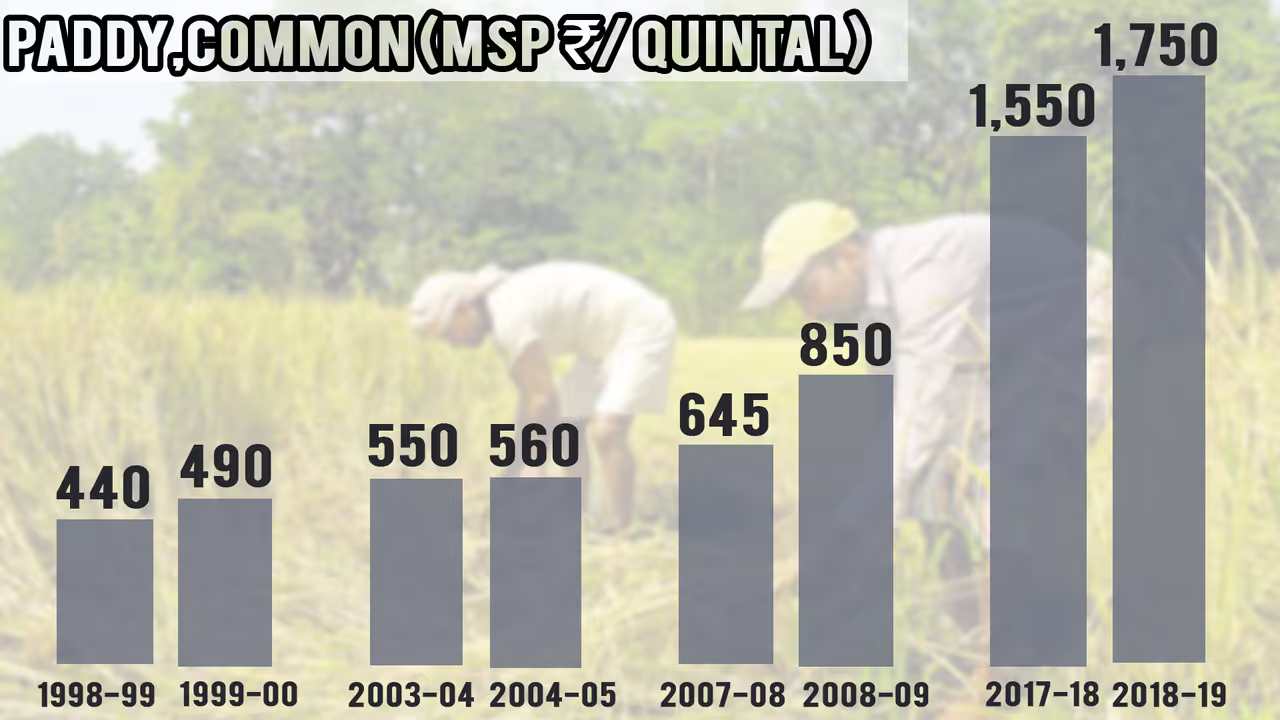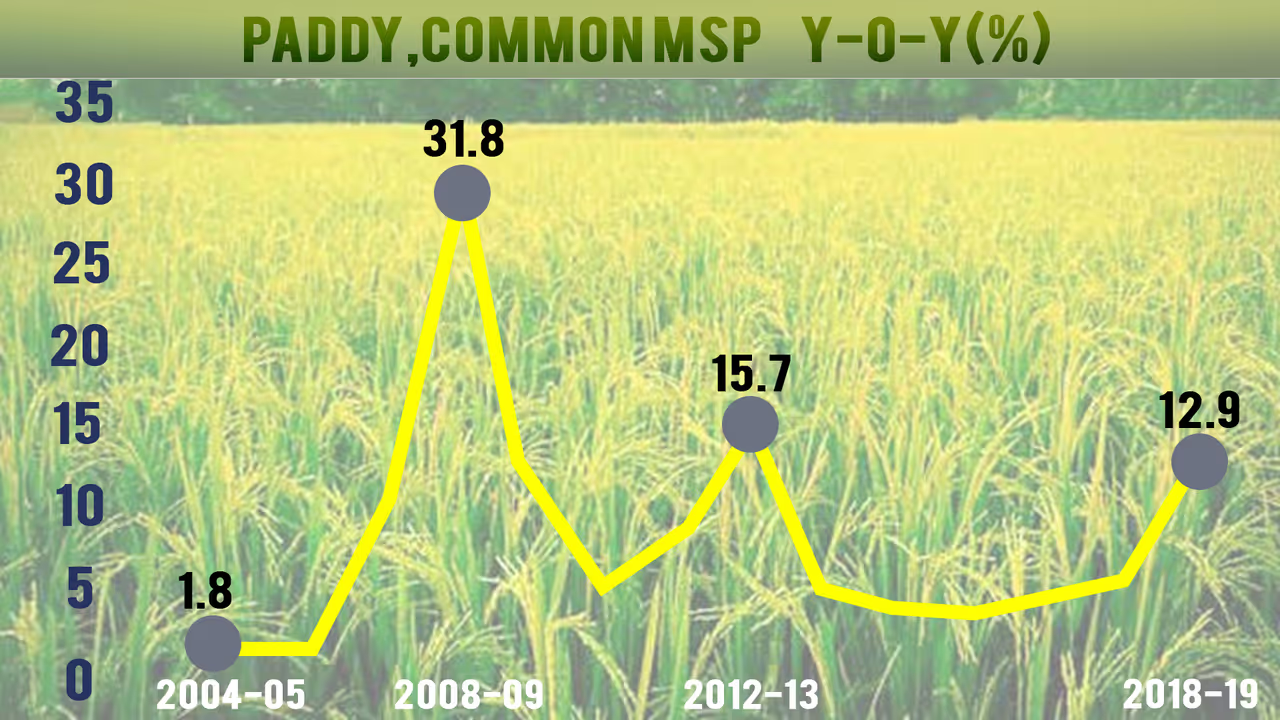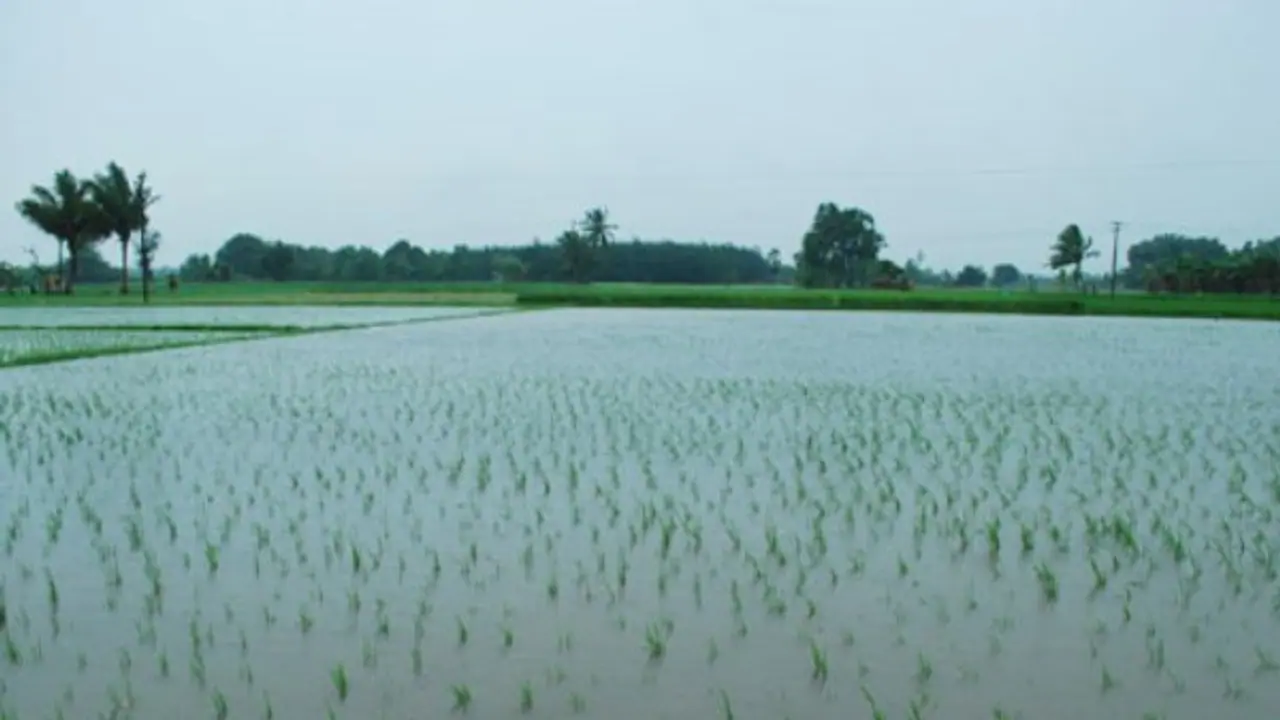The government had in July hiked minimum support prices (MSP) for various crops planted in the kharif season, including paddy, coarse grains, pulses, oilseeds and cotton. Usually, MSP is announced just before the start of the sowing season, but this step was taken keeping the state elections in mind
The Reserve Bank of India (RBI) has said that the Narendra Modi government’s hike in minimum support prices (MSP) for kharif crops announced in July were much below the ones brought under the previous UPA governments in 2008-09 and 2012-13.
The government had in July hiked minimum support prices (MSP) for various crops planted in the kharif season, including paddy, coarse grains, pulses, oilseeds and cotton. Usually, MSP is announced just before the start of the sowing season, but this step was taken keeping the state elections in Rajasthan, Madhya Pradesh and Chhattisgarh in mind.
The government declared a hike for the winter crop as well last week. In this round there has been an increase of Rs 105 per quintal for wheat, and Rs 225 per quintal for masur.
The RBI in its monetary policy report (MPR) published on Friday said: “In a historical perspective, the current increase in MSPs (announced in July) is significantly higher than the average of the last five years but well below the upward revisions in 2008-09 and 2012-13."
Paddy’s MSP hike
Paddy is the main crop planted by the farmers in the kharif season and is procured by the government in large quantities. An increase of Rs 200 per quintal in its (common paddy) MSP is, however, a tad lower than that in the 2008-09 election year. The increase in MSP 2008-09 was the highest-ever (excluding bonus) in an election year. MSP is a price at which the government buys crops from farmers, irrespective of its price.

The current hike in the MSP of paddy is the third-highest in the past 15 years. The highest was in the election year of 2008-09.

What RBI said
> According to the MPR, the hike for 14 crops for the kharif 2018-19 season shows a nominal MSP increase in the range of 3.7% to 52.5% as compared to the level last year.
> The present MSP hike can lead to a 0.29-0.35% hike in headline inflation, while the RBI's core mandate is to contain headline inflation.
> An estimate of the impact of an increase in MSPs has been factored in the baseline inflation projections.
Implication on inflation
Implementation of MSP would lead to increase in the market price of produce and could potentially lead to some inflationary pressure. Experts feel this could lead to wholesale inflation rising by 38 basis points year-on-year and retail inflation by 70 basis points.
Although the impact on inflation could be lower if agricultural production is stronger than expected, coupled with a favourable monsoon this year.
Will it help the farmers?
If implemented successfully, the move stands to bring in much awaited relief for the farmers and help the government in reaching its goal of doubling farm income by 2022. The real challenge is the actual on ground implementation. Many crops across states have been selling substantially below the MSP. The move should aim at converting MSP into market prices and farmers gaining from it real time.
